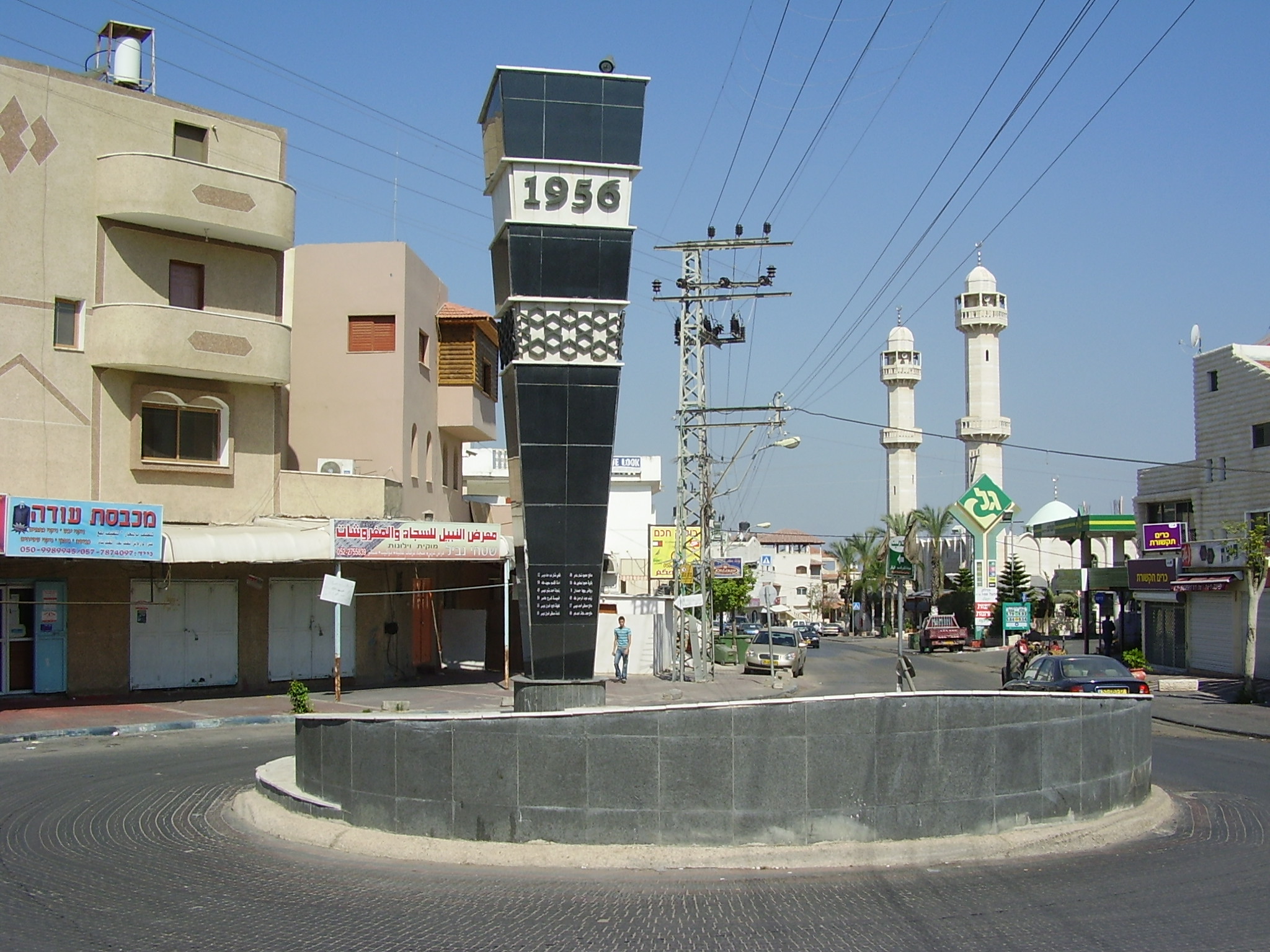Prof. Sam Lehman-Wilzig – Kfar Qasim, Judaism and Cancel Culture
One of the central divisive issues in America today is “Cancel Culture.” Less known is that Israel has its own Cancel Culture issues as well. Does Judaism have anything to offer about the phenomenon that perhaps can help Israel forge a coherent policy?
There isn’t much need to detail the myriad Cancel Culture events in the U.S.: statue toppling; prohibiting free speech that might lead to “micro-aggressions”; out with Columbus Day – in with Indigenous Peoples Day (existing side by side – for now).
And in Israel? The 800-pound gorilla in the room is the “Nakba” – the Palestinians’ devastating defeat in the War of 1948 (a/k/a War of Independence) and “ejection” of hundreds of thousands from their homeland. For obvious reasons, this is not “celebrated” in Israel – nor is there any official commemoration for the country’s Palestinian (a/k/a Israeli-Arab) citizens. The Nakba isn’t “canceled;” it’s merely ignored.
This past Thursday, an ancillary issue reached the Knesset – not regarding the Nakba itself but rather about a singular event in 1956: the Kfar Qasim massacre. For those not familiar, here’s the Wikipedia description (I have lightly edited and removed the scholarly citations for brevity; they can be found here: https://en.wikipedia.org/wiki/Kafr_Qasim_massacre):
The… massacre took place in the Israeli Arab village of Kafr Qasim situated on the Green Line, at that time, the de facto border between Israel and the Jordanian West Bank on October 29, 1956. It was carried out by the Israel Border Police (Magav), who killed Arab civilians returning from work during a curfew of which they were unaware, imposed earlier in the day on the eve of the Sinai war. In total 48 people died, of which 19 were men, 6 were women and 23 were children aged 8–17…
The border policemen who were involved in the shooting were brought to trial and found guilty and sentenced to prison terms, but all received pardons and were released in a year… The Israeli court found that the command to kill civilians was “blatantly illegal.”
The facts, therefore, are not much in dispute. The question is whether to commemorate this sorry incident. Precisely that question is what the Knesset voted down: a proposed draft law to commemorate the event and teach it in Israel’s schools – one hour every October 29, so that such an event never happens again. Parenthetically, this was a time bomb for the present government, given that the RAAM (Arab) party, a coalition member, was determined to vote for the draft law despite the government’s decision to oppose the law (that had no chance of passage giving the right-wing Opposition’s refusal to support it). In the end, the four RAAM MKs were given free rein to vote their conscience, averting a coalition crisis.
Which brings up the interesting question: what is the Jewish heritage’s position on commemorating an event where the Jews were not the victims but rather the perpetrators?
This is not as strange a question as one might think, given that Judaism has always been heavily imbued with historical “memory,” as Prof. Yosef Yerushalmi so eruditely expounded in his classic book Zakhor. On the face of it, therefore, one could argue that the Judaic memory credo is diametrically opposed to “cancel culture” of any sort.
That is certainly true when Jews suffered persecution (and worse) in the past – the basis of almost all non-Torah holidays and fast days: Purim (Haman), Hanukkah (Jewish assimilation), Tisha B’av (Temple destructions), 17th of Tammuz (Jerusalem walls breached by the Romans).
But then there are other types of commemoration. For instance, the Fast of Gedaliah when a Jewish viceroy was assassinated by Jews (eerily like PM Rabin’s assassination that is commemorated in Israel as a quasi-national holiday). Even more germane to our Cancel Culture question is the biblical commandment to publicly remember what Amalek did to the Israelites in the desert – a passage read every pre-Purim Sabbath. Indeed, this passage is particularly “paradoxical” because it demands that Jews “erase the memory of Amalek” (i.e., massacre them) by publicly recounting every year what they did way back then! In other words, the Jewish approach to “canceling” is remembering!!
Kfar Qasim, though, was not a case of national revenge against those who attacked Jews – but it is symbolic of the entire Israel-Arab conflict, in which both sides point a finger at the other for bearing the brunt (or all) of the blame. It should be noted that as a proportion of the Jewish population, more Jewish Israelis died in the War of 1948 than in any other of its subsequent wars (6,373 killed in action, around 1% of the population) – a war that the Arab countries started, against the U.N.-sanctioned Partition Plan.
Judaism, it seems, does not avoid Jewish massacres of others; any close reading of the Bible makes that very clear. To take but one example, David (before being anointed king) completely wiped out (men, women, and children) two neighboring “nations” (Samuel I: chap. 27) for no good reason – and the Bible doesn’t hide that fact. On the other hand, that ancient event and others like it are not “commemorated” (most Jews have never heard of that specific Davidic massacre).
The bottom line: other than the paradoxical commandment regarding Amalek, Judaism does not support a Cancel Culture approach to history; if anything, we have a souped up Commemoration Culture. However, Jews also don’t turn their own historical depredations into something to be recalled in any official way. Call that hypocritical, inconsistent, paradoxical, understandable, justifiable, or any other term you wish – it certainly shows that Judaism doesn’t hide the Jewish People’s own mistakes, but they also don’t wallow in them
To Pre-Order: Virtuality and Humanity by Prof. Sam Lehman-Wilzig and/or his other books follow this link to Amazon










